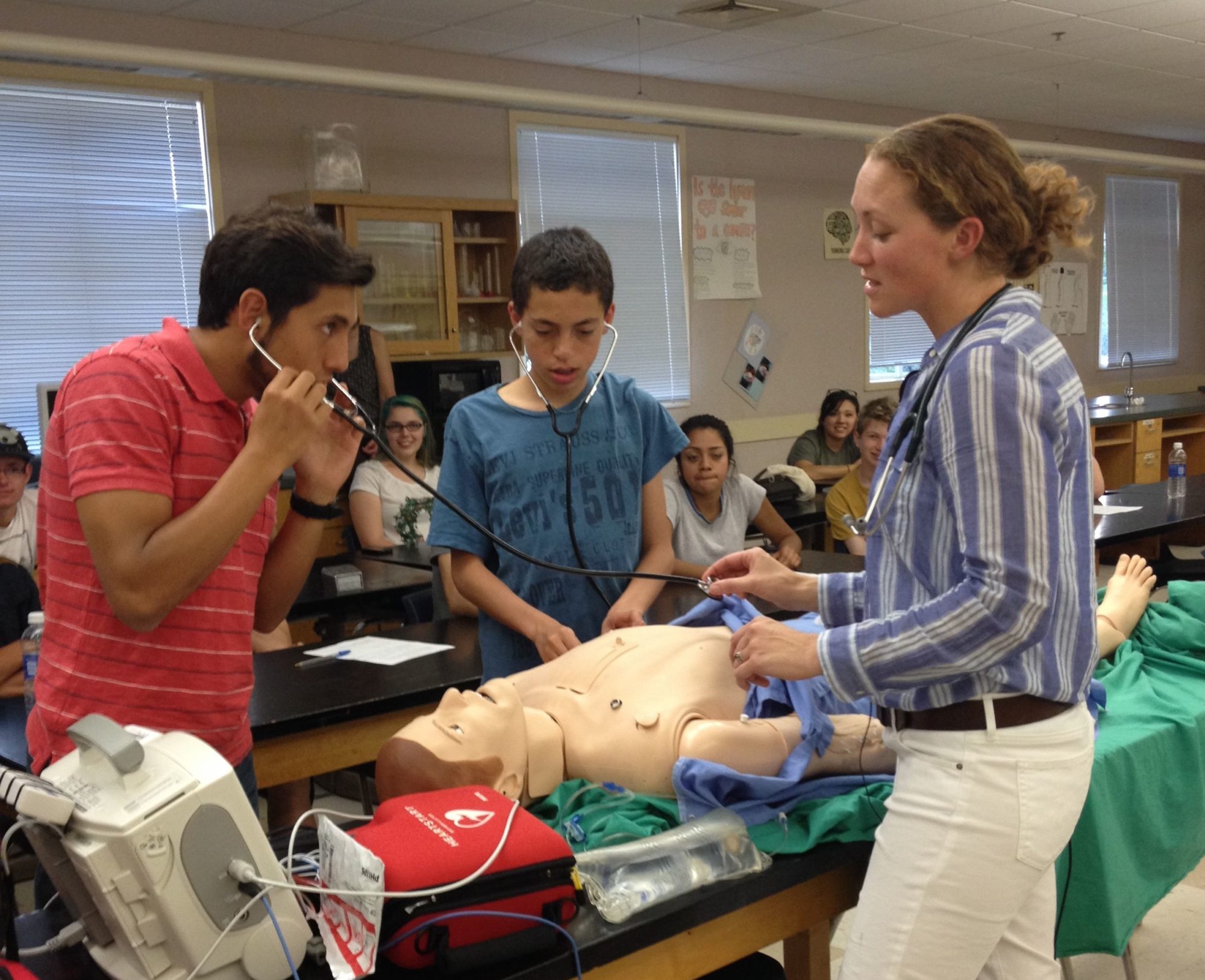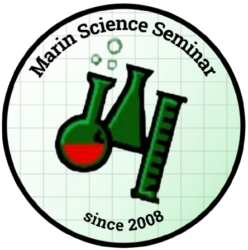This week the Marin Science Seminar introduces a unique presentation on medical education with Rich Fidler PhD MBA and Abi FitzGerald MSN RN of the VA Medical Center and their special guests – robots! These humanlike robots are utilized by medical practitioners at the Simulation Center at the VMCA in San Francisco to learn how to perform a variety of procedures and respond appropriately to different emergency scenarios.
Rich Fidler is the Director of the Healthcare Simulation which places him in charge of all of the simulation research, education, training, and process evaluations that take place in the entire hospital, including emergency, critical care, surgery, and disaster preparedness. Fidler is also the Co-Director of the Fellowship Program in Advanced Clinical Simulation. Fidler explains this role in the following quote; “I am responsible for ensuring that our advanced fellows are receiving challenging experiences, quality didactic education in statistics, research design, thoughtful data analysis. I also ensure that they will be able to go out to conduct clinical simulations independently.” In order to obtain these job titles, Fidler has collected numerous degrees and gone through extensive medical training.
Read the interview with Rich Fidler below and be sure to attend this weeks’s Marin Science Seminar.
How did you become interested in the medical field?
I developed a special interest in healthcare when my grandfather became ill with heart problems while I was young. As early as 8 years old, I would go to spend every evening with my grandfather to try to make him feel better by pushing the fluid out of his legs. From there, I got more interested in why his heart was failing and how I could make it better. I got more interested in cardiac resuscitation after my grandfather had a sudden cardiac death event and we saved him. Then my own father had a series of 3 cardiac arrests which he survived from high quality CPR and early defibrillation, but he eventually died with the fourth cardiac arrest.
How did you become involved in the Simulation Center?
I have always liked teaching, and I think that learning with your hands is better than someone talking you to death. When I told my father about what I did with simulation, he said, ” You can’t make a living playing with dolls.” I guess I showed that you should do what you like to do, even if your parents don’t think it’s worthwhile. You have to make yourself, not your parents, happy with your career. The harder stunt is to figure out how to make lots of money doing what you love!
What advice do you have for young people aspiring to have a career in the medical field?
Do it! My grandfather said that I should either be an obstetrician or an undertaker, that way you can get people either coming or going! If you aspire to go into the healthcare field, explore your options. Becoming a physician or nurse is not your only option to make a meaningful contribution to healthcare. Medical research, especially with the human genome, is really exciting. If I were growing up now, I would probably be fascinated with that. Also, the roles of pharmacists and therapists are frequently overlooked as vital members of the healthcare team. The money should NOT be a factor in your decision. No job is worth getting up every day if you hate going. I love going to my job every single day.
Check out this very exciting presentation “Death-Defying Robots in Medical Education” with Rich Fidler PhD MBA and Abi FitzGerald MSN RN of the VA Medical Center on Wednesday, May 14 7:30 – 8:30 pm, Terra Linda High School, San Rafael, Room 207.
Read an excellent article about Rich Fidler here
~Claire Watry
Links:
http://scienceofcaring.ucsf.edu/acute-and-transitional-care/improving-cardiac-care-science-human-use
http://www.ucsf.edu/news/2011/01/8397/new-teaching-and-learning-center-transform-health-education-ucsf
https://www.youtube.com/watch?v=cZNa0vmdgSI








